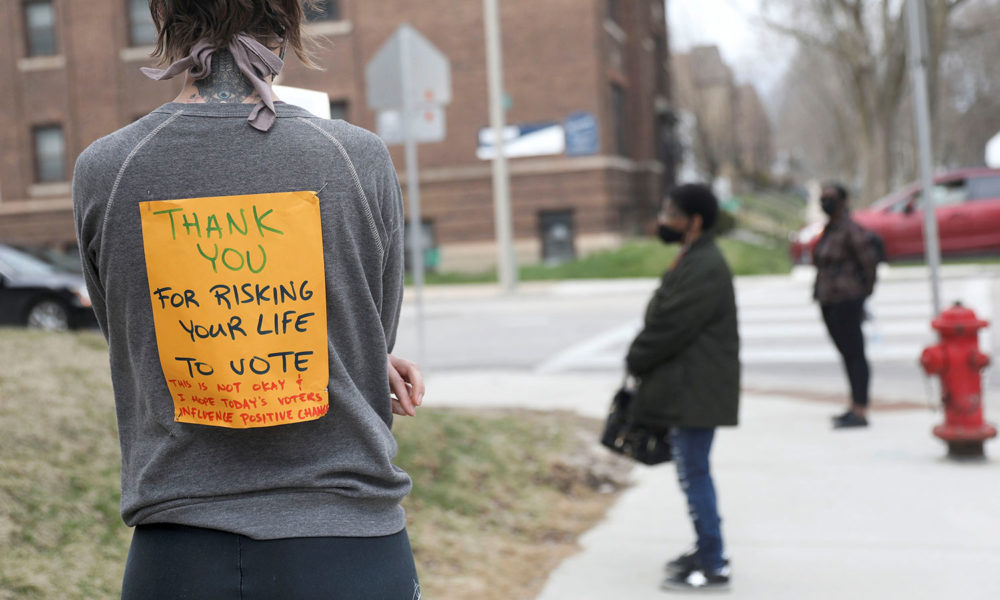An electoral disaster is unfolding in Wisconsin. The voting rights of thousands of voters were violated when they were given, in the words of one of the state judges who dissented in the decision to prevent the postponement of the primary: “an untenable choice: endanger your safety and potentially your life by voting or give up your right to vote by heeding the recent and urgent warnings about the fast growing pandemic.”
Due to a massive backlog of requests, nearly 10,000 voters had not been sent mail ballots they requested. The evening before the election, the United States Supreme Court, in a partisan 5-4 decision, prohibited the state to accept ballots sent on or after Election Day.
In March, Ohio cancelled its primary the night before the election. While it was the right thing to do, given the threat of the global COVID-19 pandemic, the late reaction initially exceeded the governor’s authority, and left voters confused. Similarly, emergency poll closures in Arizona, reassignment of polling locations in Illinois, and last minute, sometimes arbitrary decisions on the part of local election officials have reaped havoc on primary election across the country.
This should put citizens in every state on notice that the health of our democracy is being compromised. The pandemic has left all but a handful of states that already use universal vote-by-mail (Colorado, Hawaii, Oregon, and Washington) unequipped to administer a free and fair election.
Congress must take action now to prevent the global pandemic from inducing a political epidemic in November, leaving states unprepared, eviscerating voter turnout, and leaving us with ambiguous, contested election results.
Congress and the states have their work cut out for them. Electoral integrity can be protected by:
1) requiring all states to send every eligible citizen an application for a mail ballot;
2) ramping up the US Postal Service and establishing a secure ballot tracing system to provide a “chain of custody” for all those ballots;
3) establishing a secure, transparent ballot verification system that ensures every voter a fair opportunity to correct any ballot errors, which are going to be higher with mail ballots; and
4) provide strategically located, sanitary and secure voting centers where people without access to mail or due to disability, need a voting machine to exercise their right to vote.
Despite President Trump’s claim that voting by mail is “horrible” and “corrupt,” the scientific evidence shows that voter impersonation fraud is extremely rare. The president himself requested and was delivered a mail ballot to vote in the Florida primary.
The real problem is low voter turnout, and Republican and Democratic election officials across the country support these common-sense reforms.
Nevertheless, this is a tremendous challenge for states to meet between now and November. Voters need to contact their legislators and get Congress to act. You can find out how to register, vote, and take action in your state using the WeCanVote app.
You can also take the UCS pledge to build a healthier democracy this year.
The life of our democracy may depend on it.

